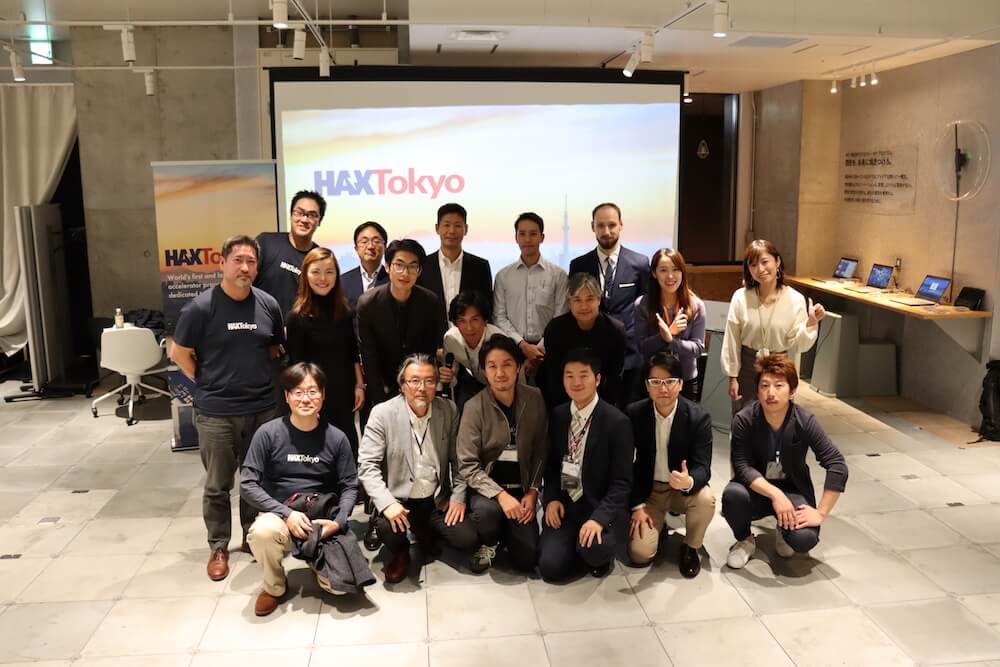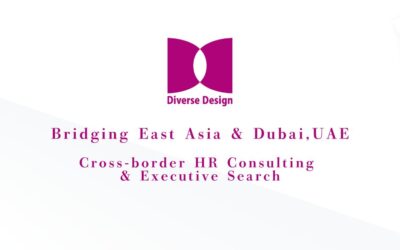"We Japanese ourselves believe in the further possibilities of the Japanese"
What inspired me with these words was Ms. Miki Watanabe, who jumped into the home ground of HAX in Shenzhen.
She is half Japanese and half Chinese and has Japanese nationality. She grew up in Japan, China, and the United States, fluent in three languages, Japanese, Chinese and English.
At her former job at McKinsey, she has also taken on the challenge of starting a new business in Africa.
Why did she join HAX? He says emphatically:
"I believe that Japan will create a new global leader. Japan already has a track record of creating several global manufacturers. That's why we can do it in new technology fields. I would like to use my international experience in HAX to connect and support Japan, China, and the United States."
HAX is the world's largest global accelerator specializing in hardware. The main feature is that it consists of two stages: developing prototypes and designing mass production in Shenzhen and raising funds and developing markets in San Francisco. She has sent out about 150 companies, including one called "Makeblock" which I interviewed before.
Over the past 4 years, the value of the startups they've backed has been more than $10 billion, and they've generated more than $10 in annual revenue. HAX receives applications from "challenger" from around the world, but it's a very unique accelerator that connects China and the United States and leads the world.
Actually, I have been paying attention to HAX since I jumped into Shenzhen, and I was eager to cover it. Now that the Tokyo office has been established, that dream has come true. What I realized from covering 3 bases, San Francisco, Shenzhen, and Tokyo, is that they are "The world's most powerful accelerator". Here's the report:
Shenzhen will be the origin of Robotics.
"HAX ’ s greatest strength lies in its ability to leverage both the Silicon Valley and Shenzhen ecosystems"
Mr. Cyril Ebersweiler, the San Francisco-based managing director who started HAX in Shenzhen, said:
Born in France, he has a wealth of international experience of 14 years in China, 2 years in Japan, and 4 years in the U.S. He is a founding member of HAX and a mentor for several companies. He is an entrepreneur and a super supporter.
Silicon Valley and Shenzhen Have Different Strengths and Attractions
Why launch HAX connecting Shenzhen and San Francisco?
"We started the China Accelerator in 2010. It was the first accelerator in China. Even 10 years ago, Shenzhen's hardware manufacturing ecosystem stood out across China. That's why in 2011, as an affiliate of SOSV, one of the world's leading venture capital firms, HAX established its 1st base in Shenzhen.
Shenzhen has many attractions, but above all, it is fast, cheap and very flexible. All of this is essential for startups, and speed is the most important. It will be possible to commercialize at the fastest speed. "Shenzhen will become a hotbed of global attention, especially in the field of robotics."
He continued, introducing the challengers from Shenzhen to San Francisco.
“Silicon Valley has its own startup ecosystem. I hear the word '〇〇 in Silicon Valley' all over the world these days, but I don't think there are many successful examples. The real attraction of Silicon Valley lies not in the hard side, but in the soft side.
Support for funds and know-how from entrepreneurs who have their own entrepreneurial and successful experience, a business mindset for global expansion, marketing and organizational strategies, and examples of successes and failures. Building on this software stack, Silicon Valley's entrepreneurial ecosystem continues to evolve.
Silicon Valley and Shenzhen have different strengths and attractions. Leveraging both ecosystems is HAX’ s greatest strength. ”
The birth of HAX Tokyo that connects Japanese companies and the world
"Startups can easily create use cases by tying up with big companies. We will also make full use of our global network to support their global expansion."
Mr. Hidehiro Yamaki of Sumitomo Corporation, a core member of HAX's Tokyo office, and Mr. Yoshitaka Sasaki of SCSK, a systems integrator of the Sumitomo Corporation Group, say.
In fact, HAX Tokyo was established in July 2019 with the full support of the Sumitomo Corporation Group. Tokyo is the only place in the world where HAX applicants can apply and get support before the first selection in Shenzhen.
Why not use this program?
It is a narrow gate where 15 companies are selected from over 1000 applicants every year, but it has a special program where they can host a training camp in Shenzhen in advance while competitors from other countries are competing with one shot.
It is a narrow gate where 15 companies are selected from over 1000 applicants every year, but it has a special program where foreign competitors can host training camps in Shenzhen in advance.
There are also opportunities to tie up with large companies during HAX ’ s program. Here is an example of this.
Youibot, which develops delivery robots, was founded in 2017 and joined HAX. During the program, it collaborated with global tire manufacturers to develop new products in just a few months, which would normally take several years. As a result, he succeeded in procuring Series A after graduating HAX.
Japanese companies have no choice but to take advantage of the program. The world sees Japan as a country that does not challenge innovation. There's no way we can go on like this. The team members of HAX Tokyo agree as follows.
"Indeed, there are few global leaders in the IT field originating in Japan. In hardware, though, there's still a chance. In fact, the number of entries is more than expected, the level of technology is high, and there are many new technologies. From there, it is important to build a realistic prototype, English ability and global mindset to compete in the world. For that, we want to challenge with them."
HAX Tokyo Introduces Robotics to the World
At HAX Tokyo, an event where applicants give presentations, I met an interesting challenger. That's Halo world’s Founder & CEO, Mr. Tenpuu Siva. "We want to provide robots as an essential infrastructure for society." Siva said.
Siva started his own business for 15 years by starting a trading company related to nuclear power plants with his father from his parents' room in Niigata. He has always responded to the real needs of nuclear power plants by closely working with them to manufacture and commercialize flame-retardant sheets, shielding vests, and other products that meet their needs.
The business continued to grow steadily, and 10 days after opening a new office in Fukushima, the office was shut down due to the nuclear accident in the Huge East Japan Earthquake. From there, a further challenge to support the people at the nuclear power plant began.
Robot technology born from real experience
There are many dangerous places at nuclear power plants. So instead of a human being, we've started to develop robots that can work without risk. There are 2 main products, autonomous robot technology "ReFRO" and spatial 3D scanner "Be THERE".
If you put a Be THERE on top of the ReFRO and let it run autonomously, it will move unmanned and instantly convert the surrounding environment into data by 3D scanning. It will be possible to measure the environment three-dimensionally even in places where it is difficult for humans to step in. The epoch-making robot technology is currently under development, and there is a wide range of future needs, including construction sites and undeveloped areas.
This is a real use case born out of the long experience of listening to the needs of the nuclear power plant site and providing something new.
"From the very beginning, I had a philosophy that work is 'sustainable human assistance'. And I want to create a new infrastructure. We want to provide robots that have infrastructure, that help people, that help co-exist and co-prosper."
For the past three years, he has been working at his own expense with Toyota CTO, an expert in the development of disaster robots, and his colleagues at home and abroad.
With the Huge East Japan Earthquake as the starting point for entrepreneurship in Japan, and now that we can differentiate ourselves and contribute to society, we decided to challenge HAX in order to "Access to the world".
Siva's sincere words are touching on my heart. I also feel serious because I am mature as a person with business experience.
The average age in Shenzhen is 32, and Siva's adult team will be competing with them. How cool is it to be able to continue to be aggressive and evolve at any age?
Utilizing Japan's Uniqueness through the Concept of Inversion
"THE JAPANESE MARKET IS SPECIAL." is a common word that often appears overseas.
I have worked with companies in Europe, the United States and China, but I do feel that Japanese and Japanese companies are unique from a global perspective. It is only natural that global expansion would be difficult if such a special market is considered as a standard.
In order to compete in the global market, it is necessary to shift from global standards to a more customized approach for the Japanese market. With the birth of HAX Tokyo, HAX has opened a new avenue connecting Shenzhen, Silicon Valley and Tokyo. By participating in this, I believe I will be sure to be able to compete in such a world.
Is it possible to end the uniqueness of Japan in a special way or to use it as a strength? In order to do that, you should first go out into the world and start wearing "A global mindset and techniques and techniques to survive".
If we do so, as Miki said at the beginning, we Japanese themselves will be able to take on the world stage believing in the further possibilities of the Japanese.
Thank you!
Jan 1st, 2020
Kaoru Fujii,
Founder & CEO, Diverse Design K. K.
https://diversedesign.website/


サムネイル-400x250.jpg)

